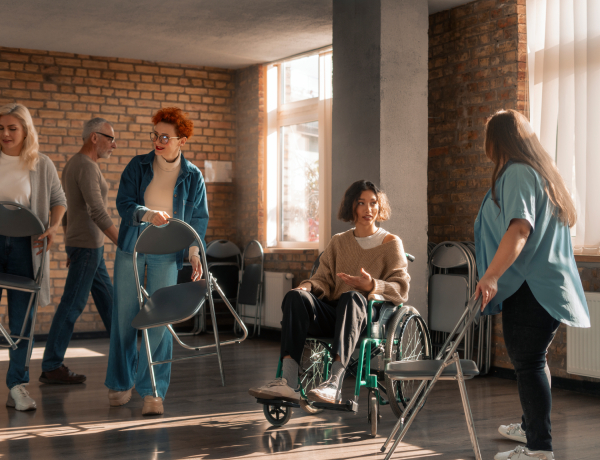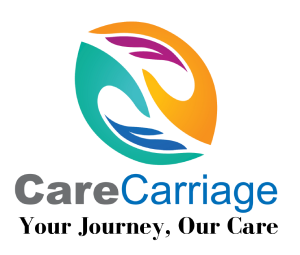
Innovative Community Participation
Innovative Community Participation is a service under the NDIS (National Disability Insurance Scheme) designed to help participants engage in unique, creative, and non-traditional community activities. This service focuses on finding new ways for individuals to participate in their communities, enhancing their independence, inclusion, and opportunities for personal development.
The Innovative Community Participation service is particularly designed for participants who want to explore non-standard or creative ways of engaging with their communities and who may benefit from more individualized or tailored approaches to community participation.
What is Included in Innovative Community Participation NDIS service :-
1) Personalized Social and Recreational Activities
- Creative and Artistic Programs : Participation in activities such as art classes, music workshops, theater productions, or other creative arts that provide participants with opportunities to express themselves.
- Hobby-based Groups:Engaging in niche activities like photography clubs, gaming groups, or craft circles that are tailored to the interests of the individual.
- Adaptive and Non-traditional Sports: Access to adaptive sports or fitness programs that may include inclusive cycling groups, wheelchair basketball, or community fitness initiatives designed for people with disabilities.
2) Technology and Digital Inclusion
- Digital Literacy: Offering programs that teach participants how to use technology to engage with their community, access services, and enhance communication (e.g., online workshops, digital skills training, or virtual social groups).
- Virtual Engagement: Facilitating participation in online communities, gaming, or virtual meet-ups where participants can interact socially and access services from home.
- Tech-driven Social Programs: Innovative activities that use technology to enhance social interaction, such as virtual reality experiences, interactive learning sessions, or digital support groups.
3) Community Empowerment Programs
- Skills for Independent Living : Programs that focus on teaching practical life skills, such as financial literacy, cooking classes, or home maintenance, in a community setting.
- Peer Mentoring and Leadership Programs: Engaging in opportunities where participants can develop leadership skills or act as mentors for others, promoting self-advocacy and empowerment.
- Entrepreneurship and Business Skills: For participants interested in starting a small business or engaging in a creative project, the NDIS may support programs that help them develop business ideas, create products, or learn entrepreneurial skills.
4) Inclusive Events and Activities
- Non-traditional Community Events : Participation in events like pop-up markets, inclusive festivals, pop-up community gatherings, or unconventional activities tailored to different interests.
- Cultural and Religious Participation: Innovative ways for participants to engage with cultural, religious, or spiritual communities, including supporting access to festivals, ceremonies, or religious services in inclusive ways.
- Unconventional Travel and Social Events: Helping participants explore innovative social outings, including accessible travel options, weekend retreats, or community-run excursions that focus on inclusion and participation.
5) Workshops and Skill-building
- Leadership and Advocacy Workshops:These workshops provide participants with the opportunity to develop leadership skills, self-advocacy, and confidence in engaging with their community and beyond.
- Job Readiness and Career Exploration: Offering participants opportunities to develop job-related skills, including resume building, job shadowing, internships, or volunteer positions that help them transition into meaningful work or further study.
- Environmental Engagement: Opportunities for participants to engage with their environment through sustainability programs like community gardening, volunteering for environmental causes, or participating in local conservation projects.
6) Social Innovation and Connection
- Building Unique Connections : Encouraging participants to form new, non-traditional social bonds through activities like social media groups, community projects, or peer-to-peer mentoring.
- Customized Group Socials: Support in organizing unique social gatherings such as movie nights, group dinners, or hobbyist groups that cater to specific interests or niche communities.
7) Creative Accessibility Solutions
- Developing New Solutions for Participation : Creating and offering access to innovative tools or adaptations that make it easier for participants to join in community activities. For example, providing adaptive tools for communication, mobility aids, or assistive technologies that open doors to new social experiences.
- Exploring New Venues or Spaces: Introducing participants to new and emerging venues and activities designed to be accessible and inclusive, such as inclusive fitness centers or arts venues with adaptive equipment.
8) Community Projects and Social Enterprises
- Social Enterprises: Supporting participants to engage with social enterprises where they can contribute to community-based projects or organizations that benefit others with disabilities.
- Collaborative Projects: Innovative community programs that allow participants to take part in projects that challenge traditional ways of interacting, such as public art installations, social impact projects, or environmental campaigns.
How to Access Innovative Community Participation?
- NDIS Plan: Innovative Community Participation is funded under the Capacity Building category, typically under Increased Social and Community Participation. This support is designed to encourage personal growth and creative ways of building skills, confidence, and independence through non-traditional community activities. To access it, participants should have clear goals in their NDIS plan that relate to learning new skills, increasing community involvement, or trying unique and meaningful activities that go beyond standard supports.
- Supporting Evidence: Participants may need to provide evidence showing how innovative or tailored activities will help them achieve their goals. This could include letters or reports from support coordinators, allied health professionals, or mentors outlining the expected outcomes, benefits of community involvement, and how the activities will build capacity in daily life or employment.
- Support Coordination: Support Coordinators can help participants identify suitable innovative programs, such as mentoring, creative workshops, entrepreneurship training, or personal development groups. They also assist with sourcing qualified providers, preparing documentation, and submitting plan review requests if this support is not yet included in the plan.
Benefits of Innovative Community Participation
- Builds Confidence and Self-Esteem: Participants engage in new experiences that challenge and inspire them, helping to develop confidence and a stronger sense of identity.
- Encourages Personal Development: Programs focus on individual goals and passions—such as leadership, creativity, or advocacy—promoting growth beyond traditional settings.
- Expands Social Networks: Through unique group activities or mentoring, participants connect with like-minded people and expand their social and support circles.
- Supports Pathways to Employment or Education: Activities often include transferable skills training (e.g. communication, teamwork, project planning), supporting future study or job goals.
- Promotes Inclusion Through Creativity and Innovation: Innovative programs break away from standard models and offer inclusive ways to explore the community, express talents, and build purpose.
